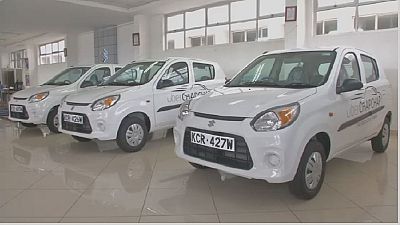Kenya
Africa should be a huge growth market for automakers. However, transport links are weak and personal car ownership still very low. For instance, there are 25 cars per 1,000 Kenyans compared to 786 in the United States, according to the World Bank.
At Suzuki Motor Corp’s showroom in the Kenyan capital Nairobi, hundreds of its Alto compact cars are waiting to be collected by customers, most of whom are drivers for ride-hailing company Uber Technologies. It struck a loans and discount deal with the Japanese carmaker and South Africa’s Stanbic Bank at the start of 2018.
The Alto deal in Kenya, soon to be extended to Uganda and Tanzania, offers car financing for top-rated Uber drivers at a price of just over $8,000, lower than the usual $9000. The loans are repaid with the money the driver earns providing services.
“I heard that Stanbic Bank was financing people up to 100 percent to enable them get their own cars, and that you could pay over time, which was good. I went to a meeting at Stanbic, signed the documents and I believed that since I was able to pay the partner, then I would manage to pay the loan as well,” Njoroge, said.
Suzuki’s strategy has propelled it from the bottom of sales tables in Kenya, where it languished for decades with emerging brands from China, to the top five.
Suzuki sold 523 Altos in Kenya this year.














01:00
Valentine's Day: Can Benin's Venice still compete with dating apps?
Go to video
Kenya starvation cult preacher Paul Mackenzie charged over 52 more deaths
00:51
Kenya FM to visit Russia over forced conscripts in Ukraine
01:17
Shutdown of Kenya’s Koko biofuel firm wipes out clean cooking options
11:16
Sino-African Cooperation: A New Turning Point [Business Africa]
01:01
China to import some South African products duty-free